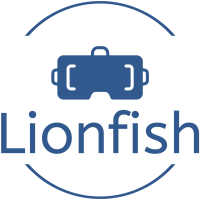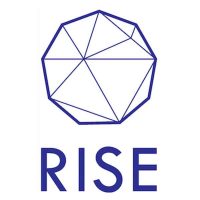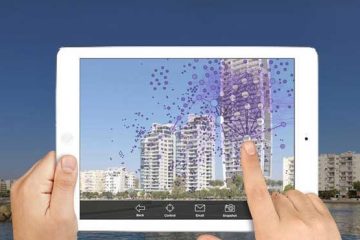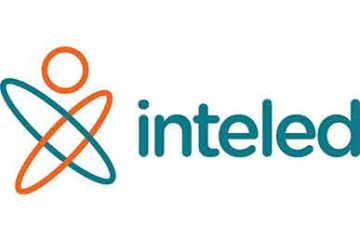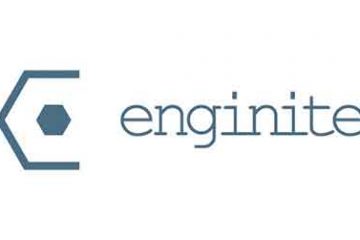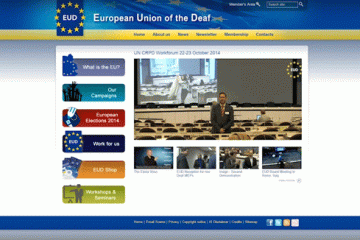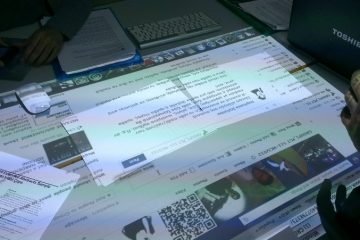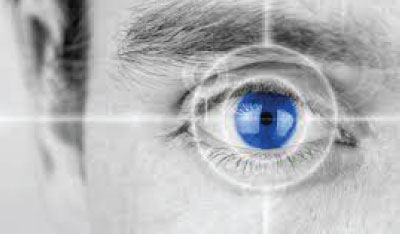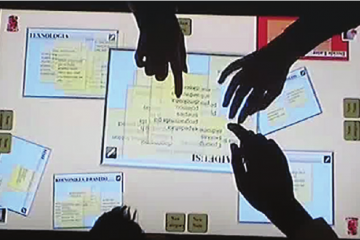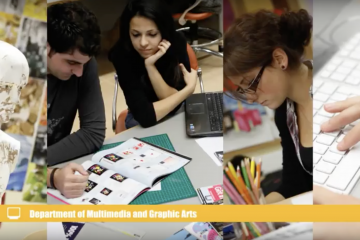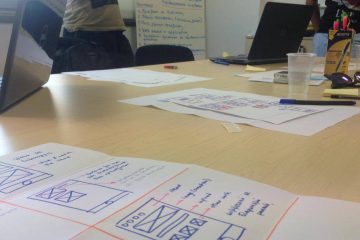ACTIVE:
Making Democracy is a project co-funded by CYENS (EdMedia research group, extension of the Cyprus Interaction Lab), the Cyprus University of Technology (Serious Products Lab), and Lemesos 2030: European Capital of Culture Candidate City. This is a research-driven design project focused on the design and making of an interactive toolkit for human rights education. It is an interdisciplinary endeavor building on expertise from the fields of design, human rights education, and making to design the toolkit, whilst it explores the co-design process as it evolves through interactive workshops. This project represents a space where ‘making’ meets design thinking and human rights education, underscoring the value of interdisciplinary collaboration. The toolkit, as one of the main outcomes of this project, will present physical products with interactive elements and guides in the form of game rules to support young adults and their educators in facilitating learning and discussions about human rights. The toolkit will be designed to contribute to the development of democratic competences, such as empathy, respect for diversity, and active participation.
The Upskilling Creatives project is co-funded by the Cyprus University of Technology (Internal Interdisciplinary Research Programme) and CYENS (EdMedia research group, extension of the Cyprus Interaction Lab). It brings together multi-disciplinary expertise from the fields of Generative AI, the Applied Arts, and Instructional Design. The project is targeting students and recent graduates in the areas of Design and Applied Arts who wish to incorporate aspects of Generative AI in their practice. We aim to generate knowledge on upskilling and meeting the new challenges of bringing Generative AI to non-IT sectors. The project revolves around key concerns, which require a multi-disciplinary approach by nature: What are the needs of learners coming from Creative backgrounds in terms of gaining knowledge and competencies related to the ever-evolving field of Generative AI? What is the most suitable pedagogical model and tools for successfully achieving this goal?
Immersed in the LIONFISH 360VR film, the students are transported to a climate hotspot, a coast in Cyprus, where the new region’s lionfish species is spreading out, putting in danger the local ecosystem and the fishermen’s craftsmanship. The primary objective is to help students understand the impact of climate change on the Mediterranean marine ecosystem. Via STEM/STEAM transdisciplinary practice and visual thinking canvases the students explore local challenges related to climate change and sustainability.
CARS: Children as Creators of Augmented Reality Stories [CARS; 2024-2026, Grant No: 63F0F8B9] aims to promote AR as a medium children can use to create and share their own stories as part of their language learning experience. The project will study the use of AR in schools and develop technical and pedagogical training for teachers. This will enable teachers to integrate the use of AR in language learning classes. The results emerging from the testing and evaluation will allow us to gauge the project’s impact and disseminate findings to contribute to this research field.
MetaCivicEdu: Applying modern metaverse-enabled pedagogical techniques for civic learning, and Supporting K-12 teachers and students [MetaCivicEdu 2024-2026, KA220-SCH-DA0A14F7]: This project addresses the weaknesses in the provision of civic education in primary schools. This project aims to improve teachers’ skills and competencies in using metaverse technologies XR (Extended Reality) to support civic learning and to better prepare them to use advanced modern technologies to help young students develop and practice the knowledge, beliefs, and behaviours they need to participate in civic life and make an impact on their community.
The ARIDLL – Augmented Reality AR Instructional Design for Language Learning [Erasmus+ KA220-HED-000088034] aims to develop a cooperation partnership and a professional community in Augmented Reality (AR) instructional design for language learning. The project is motivated by the need for digital innovation in language teaching. Although AR has become a popular technology, however, there are numerous challenges regarding the use of AR in educational settings in general and in foreign language (FL) teaching in particular. The technology is still new, and few best practices examples exist in the teaching community. ARIDLL aspires to fill the identified gaps by providing pre-service and in-service language teachers with support and materials to facilitate the use of AR in their practice. The project will develop these materials and evaluate them in different contexts, from schools to universities, focusing on different languages.
FemPower Project – Gender Equality in the Clean Energy Transition. The FemPower project [KA2 – Agreement Number: 2021-1-EL01-KA220-HED-000030178] started in February 2022 and will end in July 2024. The objectives of the FemPower project is to develop tools, methodologies, Open Educational Resources, a peer Learning Network and a cross-sectoral multidisciplinary collaboration that will increase inclusion and diversity in the Clean Energy Transition (CET), develop STEM/STEAM in higher education, in particular women participation in STEM and promote interest and excellence in science, technology, engineering, and mathematics (STEM) and the STEAM approach. The project coordinator is Aristotelio Panepistimio Thessalonikis, Greece (AUTH) and the partners are Politecnico Di Milano, Italy (Polimi), Technologiko Panepistimio Kyprou, Cyprus, the Centre For Research On Women’s Issues, Greece (Diotima), Centar Za Promociju Nauke Serbia (CPN), Digijeunes France Toulouse, Universidad Del Pais Vasco Spain País Vasco Leioa (UPV/EHU), Technische Universiteit Delft Netherlands Zuid-Holland (TUDELFT) and Duneworks Netherlands Noord-Braban.
The DR FLEMP -Digital Reality in Foreign Language Education for medical professionals [Erasmus+ KA226-HE-005812] aims to support digital transformation in Foreign Language Education (FLE) in the EU, whilst focusing on filling the existing gaps and raising efficacy of foreign language education by nursing and caretaking students, as well as already qualified professionals, through Immersive learning environments that can address the challenges of digitization in educational systems. The coordinator of the project is the Internationale Akademie für Management und Technologie (INTAMT) e.V., Germany. CUT is one of the partners of the project along with SPRACHiNVEST GmbH (Germany), Utenos kolegija (Lithuania), UMEA UNIVERSITET (Sweden), and Internationale Agentur für Marketing und Technologietransfer (INTAMT), GmbH (Germany).
The H2020 TEAMING project “RISE” aimed at the establishment of an interdisciplinary Research Centre of Excellence. The grant awarded was 0.5 million EUR in Phase 1 (2015-2016) for the development of the business plan for the Centre. In Phase 2, the grant awarded was over 30 million EUR (2017-2025) for the establishment of the Centre. The CYENS Centre of Excellence (formerly known as RISE) is today the Research and Innovation Centre of Excellence in Cyprus focusing on Interactive media, Smart systems and Emerging technologies aiming to empower knowledge and technology transfer in the region. It is a joint venture between the three public universities of Cyprus – University of Cyprus, Cyprus University of Technology, and, Open University of Cyprus- , the Municipality of Nicosia, and two renowned international partners, the Max Planck Institute for Informatics, Germany, and, the University College London, United Kingdom.
COMPLETED
Entering the EdTech Entrepreneurship World is a Knowledge Alliance project (NUMBER –621584-EPP-1-2020-1-EL-EPPKA2KA) builds on the idea that education is an unpredictable industry. If one is launching a startup in the Educational Technology (EdTech) niche, s/he needs to be prepared for the specific challenges that will face while attempting to enter into this market. At the same time the EdTech industry has exploded on a massive extent; the competition is huge and to stand out one must be unique in multiple ways. The ENTER project is at the forefront of this challenge, by improving the quality of entrepreneurship education around EdTech, bringing together academic and industrial partners with entrepreneurial experience and with expertise in educational technologies and learning pedagogies, aiming to empower undergraduate & postgraduate students, faculty members, researchers, educators as well as university alumni to become EdTech entrepreneurs.
The EPOS Internationalisation at Home (IaH), part of the Cyprus University of Technology Postdoctoral Excellence Innovation Programme (ΜΕΤΑΔΙΔΑΚΤΩΡ), focuses on exploring and enhancing Internationalisation at Home (IaH) practices in the Republic of Cyprus.
The project is led by Dr Maria Victoria Soule as the principal investigator, with Dr. Andri Ioannou and Dr Antigoni Parmaxi, as the project co-supervisors. On the project’s website you will find the EPOS Toolkit with case studies from around the world where IaH initiatives have been implemented, EPOS Webinars where the research findings of the EPOS project are presented as well as hands-on workshops dedicated to advance academic teaching staff competence on IaH, Testimonials from experts in IaH, and the EPOS Guide to implement IaH practices. The EPOS website also boasts The EPOS Training Programme Space, which has been thoughtfully created to support academic teaching staff in improving their comprehension, capabilities, and expertise in IaH, and a Community of Practice: an environment designed to interact with colleagues from around the world and exchange ideas on how to better implement IaH practices.
The aim of the project is to develop multi-media and high-precision deep learning models for interactive communication with deaf and hard of hearing people and educational material for the implementation of educational programs as well as to improve the language and communication skills of the deaf and hard of hearing students. On the other hand, existing research efforts to tackle the problem of transcribing SL video or generating synthetic SL footage (SL avatar) from text have failed to generate a satisfactory outcome.
Female Empowerment in Science, Technology, Engineering and Mathematics in Higher Education [FeSTEM 2019-2021; Grant No: 058407]; The core objective of this project was to promote an innovative method and pedagogy that will allow HE students to use traditional and computationally-rich media to create meaningful, shareable exhibits that may act as mentoring models for encouraging girls and women to remain active in STEM.
Assessment of higher-order skills is not easy, particularly within open-ended environments where students create unique solution paths to problems, interact with peers, and act in both the physical and digital worlds. Assessmake21 was a 2-year Erasmus+ project [2020-2022] which aimed to provide a digital self-assessment tool for teachers and students to assess 21st century skills and related Open Educational Resources (OERs) that would enable teachers/educators to use the assessment solution in makerspace settings. We tested the digital tools and materials via pilots in maker contexts.
The core objectives of this project lie in the quality of information today, between mis- and disinformation or so-called “fake news”. The project aimed to: 1) improve the educational offer on the topic of quality of information in higher education and equip students with transversal skills that are necessary for the exercise of democratic citizenship. 2) foster structured collaboration between higher education and media and contribute to the policy discussion about the role of universities and media in the knowledge and informtion society 3) improve the quality of information with regards to research-based communication. The ERUM Open Educational Repository https://erum.uni-foundation.eu/module is a free and open collection of the study materials that habe been developed in the framework of the EU-funded ERUM project. Aimed at Higher Education students from all study fields, the 15 modules listed in the Catalogue intend to provide learners with an experiental journey to deepen their knowledge about mis/disinformation, equip them with critical thinking skills to improve their resilience to ”fake news”, and raise awareness about its impact on our society.
This project aimed to understand the digital readiness of 15 schools from three different countries in Europe (Spain, Netherlands, and Cyprus), explore how SELFIE (a JRC self-reflection tool on schools’ digital capacity) is used and perceived by its users, identify and describe the impact of SELFIE, situate its impact in the more complex nexus of interrelated concepts like: digital readiness of schools, school management models, the changing landscape of technologies, theory of change in organizations, integration of innovation in education as well as the datafication of schools, and provide a set of recommendations on the improvement of the tool, support material, school actions, best practices, stakeholder actions, social innovation actions.
The proposed project’s main objective was to design and develop a novel device, the IrisPhone-Pro, a Smart Home Phone ideally suited for tech illiterate and literate seniors that reflects the emerging ageing population. It has an innovative focus on its ease of usability and intuitive interface through behavioral data analytics, which required thorough research and validation.
The OpenLang network [OPENLANG 2019-2021; Grant No:] under the European Commission’s Erasmus+ KA1. The aim of the Erasmus KA2 OpenLang project was to develop an Open Language Network to connect and support all Erasmus+ KA1 participants (HE students and staff, VET, Adult, and School education staff, Youth learners, Youth Workers, Youth Entrepreneurs) during their mobilities increasing their language proficiency and also developing their intercultural and digital skills.
EDUBOTS aimed to document best practices for the use of chatbots in higher education. The project mapped the state of the art and piloted pedagogical chatbots for education at the partner universities. The project aimed to motivate the implementation of pedagogical chatbots for improving the quality of education in Europe.
The Sustainable Urban Governance through Augmented Reality [SUGAR 2019-2020] under the scheme RESTART 2016-2020: INTERNATIONAL COLLABORATION-DUAL was a research project in urban governance, Augmented Reality (AR) and public participation that aims to develop a Sustainable Urban Governance framework utilising AR, design an ICT solution and implement it through activities in workshops based in Cyprus.
Innovative Training via Embodied Learningand multi-sensory techniques for inclusive EDucation [INTELed 2017-2019; Grant No: 2017-1-CY01-KA201-026733] aimed to support special and general education teachers in acquiring knowledge and skills about the use of multi-sensory technology for learning and assessment, for addressing the needs of SEN children in inclusive education contexts. This was obtained through an innovative training method, driven by theories of embodied cognition, research on embodied learning, and the premise of multi-sensory technologies. The method was accompanied by evidence of its effectiveness through pilot studies in schools at the four partner-countries. The partners worked on presenting the pedagogical framework, the training model and instructional materials, and the procedures for implementation and evaluation. The project aimed to form a sustainable Community of Practice (CoP) around the INTELed method.
ENGineering and INdustry Innovative Training for Engineers via PBL [ENGINITE 2017-2019; Grant No: 2017-1-CY01-KA202-026728] aimed to design and promote a postgraduate Vocational Education and Training (VET) programme based on a Problem Based Learning (PBL) pedagogy and combined advanced applied academic topics with hands-on aspects, in order to endorse the knowledge and skills of graduate engineers, preparing them for the industry of the 21st century. Via a PBL approach to training, ENGINITE postgraduate vocational training programme captivated the career and employability skills of the new engineers – among others: innovation, entrepreneurial skills, efficient quality, health and safety management, problem solving, communication and presentation skills – while it will also enhance technical knowledge in critical fields of engineering.
This project aimed to develop a strategy that factors migration into environmental and development policies, as well as take environmental change into account in comprehensive migration management policies focusing on the city of Limassol as a case study. This was achieved through the training of migrants and other stakeholders through an ICT environment aiming to build the capacity of policymakers and practitioners in issues of migration, environment and climate change.
ENCASE, Marie Sklodowska Curie Research and Innovation Staff Exchanges program. The aim of the ENCASE project was to leverage the latest advances in usable security and privacy to design and implement a browser-based architecture for the protection of minors from malicious actors in online social networks. The overall vision of the project was to provide research and innovation contributions to end-user experience assessment, large scale data processing, machine learning and data mining, and content confidentiality.
The WoMEnpower [WE-ME] project was a major funded project under this initiative. The project sought to link women mentors and mentees together through an online community platform. More specifically WE-ME aimed at helping young women to receive support and advice regarding self-improvement, in order to increase their self-esteem, personal and social power, and solidarity.
The aim of the project was to develop a novel usability inspection method that can be applied to measure the usability and user experience of websites that are designed for Deaf users. The usability inspection method was in the form of a heuristic evaluation that can be used by HCI experts and developers alike. It was required to understand the unique characteristics of Deaf user interactions with websites and to examine existing web design guidelines and principles for Deaf users. In addition, a process was applied for developing new heuristics for specific application domains.
A project to explore innovative, multimodal learning environments for the support of problem based learning (PBL) in higher education, particularly design education. The project built on the idea that successful PBL implementation depends on both the selection of learning activities and development of appropriate infrastructure, that is, technology-enhanced learning spaces in which the activities can take place. This project delivered a practical framework for the construction of creative, multi-modal information spaces ideal for the implementation of PBL in the university classroom. The project revolved into the dissertation work of Dr. Vasiliou.
The goal of this project was to develop a methodological framework for optimizing the location of online advertisement. The project made use of an experimental use of eye-tracking technology for the development of such a methodological framework.
CUT Start-up Grant. This start-up grant funded several small-scale interdisciplinary, exploratory projects in the area of technology-enhanced learning and peacemaking using interactive tabletops.
CUT Start-up. This grant aimed at establishing the Cyprus Interaction Lab, purchasing of the required equipment and funding of research assistants for the execution of initial HCI related projects.
The main scientific objective of the project was to introduce computer graphics techniques into solving a specific computer vision problem. It made use of the latest advancements in capturing technology and in graphics illumination algorithms to produce a novel illumination neutralization technique. Objects emerged in appearance that is independent from the lighting conditions of the scene.
